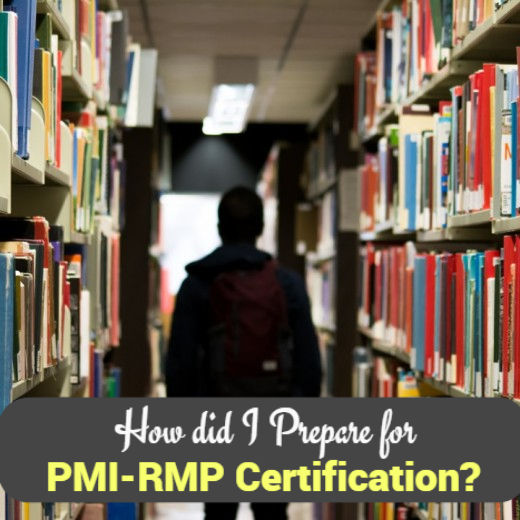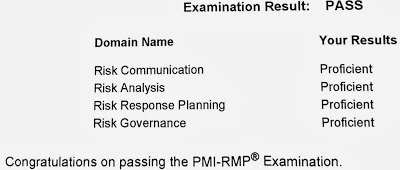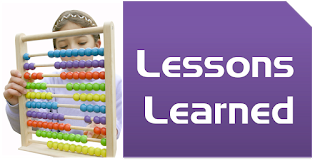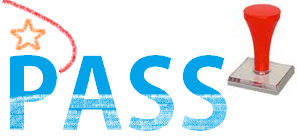What is PMI-RMP® Certification? How did I prepare for PMI-RMP® Certification? You will find answers to these questions in this article.
PMI-RMP® Certification is the prestigious Risk Management Professional Certification from PMI (Project Management Institute). It demonstrates your ability to identify and analyze project risks, avoid/ transfer/ mitigate threats and capitalize on opportunities. PMI states that
I believe that only practice can help you. I believe that most of the candidates who prepare for the risk management exam are already certified PMPs. So, they have the knowledge and basic understanding of how the risks are identified, assessed, risk responses planned, monitored and controlled. So, all they need is to practice more and more mock tests/ practice questions to get it right. Please go ahead and successfully obtain your PMI-RMP Credential!
PMI-RMP® Certification is the prestigious Risk Management Professional Certification from PMI (Project Management Institute). It demonstrates your ability to identify and analyze project risks, avoid/ transfer/ mitigate threats and capitalize on opportunities. PMI states that
83% of organizations that are high performers in project management practice risk management frequently while just 49 percent of low performers do so (Pulse of the Profession®: Capturing the Value of Project Management, February 2015)
You may also be interested in:
How did I prepare for PMI-RMP Certification?
I became a Certified Risk Management Professional and earned my PMI-RMP® Credential about two years back. In this article, I would like to share the various mock exams I tried and the scores I obtained in those. I am just jotting down the journey towards obtaining PMI-RMP® Certification.| Date of the Mock Test | Service Provider | Description | No. of questions | Score Obtained | |
|---|---|---|---|---|---|
| 1 | 24-06-2013 | SimpliLearn | Free PMP test | 175 | 78.9 % |
| 2 | 15-07-2013 | Ucertify | Free RMP Test | 15 | 73 % |
| 3 | 16-07-2013 | Ucertify | Chapter Quiz | 26 | 77 % |
| 4 | 17-07-2013 | The PM Instructors | Free PMI-RMP Questions | 20 | 85 % |
| 5 | 22-07-2013 | Rita Mulcahy | Pretest | 25 | 84 % |
| 6 | 28-07-2013 | Abdulla J. Alkuwaiti | Practice Questions | 65 | 87.1 % |
| 7 | 29-07-2013 | PMXCEL.com | Sample Quiz | 25 | 92 % |
| 8 | 02-08-2013 | Head First PMP | Risk Management Chapter Questions | 20 | 95 % |
| 9 | 03-08-2013 | VTC | RMP Part 1 | 40 | 95 % |
| 10 | 04-08-2013 | VTC | RMP Part 2 | 50 | 88 % |
| 11 | 05-08-2013 | Scordo | Risk Management Questions | 10 | 80 % |
| 12 | 06-08-2013 | Oliver Lehmann | PMP Test | 75 | 80 % |
| 13 | 06-08-2013 | VTC | RMP Part 3 | 125 | 89 % |
| 14 | 07-08-2013 | VTC | PMI-SP Part 1 | 40 | 85 % |
| 15 | 10-08-2013 | Rita Mulcahy | Human Resource Chapter | 34 | 76 % |
| 16 | 10-08-2013 | Rita Mulcahy | Quality Chapter | 35 | 91 % |
| 17 | 12-08-2013 | Rita Mulcahy | Time Chapter | 38 | 94.7 % |
| 18 | 14-08-2013 | Edwel | Free PMP Exam | 200 | 79 % |
| 19 | 12-08-2013 | Rita Mulcahy | Cost Chapter | 38 | 94.7 % |
| 20 | 15-08-2013 | Rita Mulcahy | Procurement Chapter | 40 | 92.5 % |
I believe that only practice can help you. I believe that most of the candidates who prepare for the risk management exam are already certified PMPs. So, they have the knowledge and basic understanding of how the risks are identified, assessed, risk responses planned, monitored and controlled. So, all they need is to practice more and more mock tests/ practice questions to get it right. Please go ahead and successfully obtain your PMI-RMP Credential!







